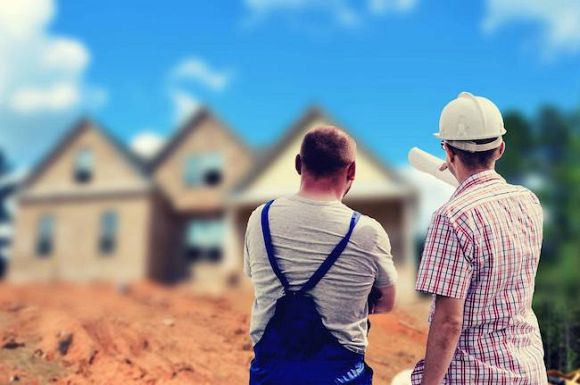Parents buying property to help their kids out are making it tougher for those struggling to make ends meet, writes Elena Filipczyk.
THE PLACE was a dump. Dark and derelict on the outside, I knew it’d also be dirty, mouldy and cockroach-infested on the inside. Just like every other one or two-bedroom rental for about $400 I’d inspected that week.
After half an hour of waiting for the real estate agent to show up, an older woman got out of her ute and approached me.
“Any idea when the agent will show up?” she asked.
“Hopefully soon,” I told her. “I called them. They’ve lost the keys.”
The woman looked to be in her 60s and I realised that things could be worse: I’m 30 with no prospects of ever owning a home. But at least I’m not 60, still spending weekends viewing awful, depressing rentals. Hopefully, when I’m 60 I can afford a nicer rental.
“They want $400 for it. Have they even seen the place?!” the woman asked.
I looked at her again and decided she was a bit younger than Mum would be.
It’d been three years since Mum had died when I was 27. Papa died just after I’d turned 16.
Growing up in housing commission homes and constantly aware of the weight of my migrant parents’ hardship, I was desperate to escape the cycle of poverty and trauma.
"Work hard and you’ll succeed," they told us in school. So I worked hard.
I was Dux of my high school and after moving from my regional hometown to Sydney so that I could attend university, I was sure I was on the path to success.
At uni, I devoted my life to studying and graduated with a double degree. Immediately afterwards, I jumped into full-time work in stable, professional, “good” jobs. For a few years, I even worked at New South Wales Parliament House.
And then Mum died and suddenly Sydney lost its appeal. I was isolated from family and despite almost ten years of house-sharing and renting privately, I was still nowhere near close to owning my own home.
Beginning a PhD, I left Sydney and settled 100 kilometres outside of the town in which I grew up. Though I can’t afford to rent in my coastal hometown, in a village just over an hour away, my scholarship and casual work cover my rent, groceries and medical expenses... just.
I’m 30 now and while none of my friends own a home and a few rent privately as I do, most of them still have their families to fall back on. Some of my friends never left home; some moved back home and some live in apartments their parents own.
I know I’m just bitterly jealous, but the social acceptance of the Bank of Mum and Dad still seems unjust.
It’s not just adult orphans like me who are being priced out of homeownership by the "boomers" just trying to help their own “kids” out. It’s those who are even more isolated and vulnerable, like disabled people and their carers, people who have escaped abusive partners and family, and people who live in poverty.
With boomers clinging on to every rung, how will people like us ever get a foot on the property ladder?
While more social housing and rent-to-buy schemes are a necessity, how do you legislate social change? Within policy, how do you stop the normalisation of the grotesquely inflated, parent-funded house deposit? How do you tell people like my friend’s mum to stop buying investment properties as a “little hobby”? How do you make housing a human right again, not an aspirational challenge?
This is temporary, I keep kidding myself. One day it’ll be my turn. I’m doing a PhD and have two casual jobs on the side. One day all the hard work will pay off.
But inspecting tiny, dilapidated $400-a-week apartments five hours from all the “good” jobs in the city, that day feels like it’s getting further and further away.
“So, how many other places have you inspected?” I asked the older woman, trying to make polite conversation while we waited for the real estate agent who never showed up.
“Just a few,” she replied. “We’re looking for our son. We might end up buying a place for him instead, though. The rent prices are ridiculous.”
Elena Filipczyk is an autistic writer, scholar and PhD candidate at the University of Wollongong.
Related Articles
- How Labor can avoid the negative gearing trap
- National Cabinet’s housing plan ambitious but lacking detail
- Economic reform vital to solving housing crisis
- Economy secure despite global turmoil, so time for a bold initiative
- More public housing would help those in Australia doing it tough
 This work is licensed under a Creative Commons Attribution-NonCommercial-NoDerivs 3.0 Australia License
This work is licensed under a Creative Commons Attribution-NonCommercial-NoDerivs 3.0 Australia License
Support independent journalism Subscribe to IA.












